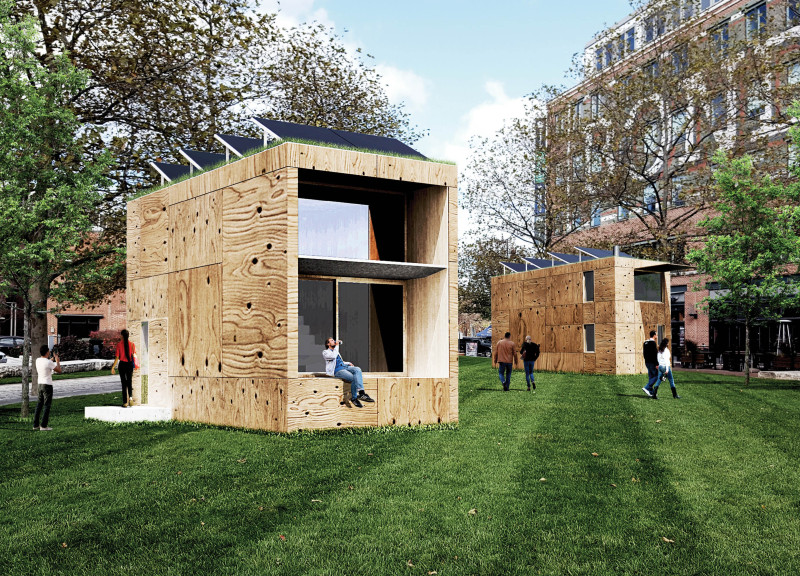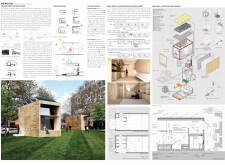5 key facts about this project
Space Efficiency and Functionality
The Micro Box maximizes the use of available space through a well-considered layout. Each unit incorporates multifunctional areas that adapt to the needs of residents, allowing for a flexible living environment. A combination of private and community spaces fosters social interaction among occupants while maintaining individual privacy. The design encapsulates the essence of minimalist living by emphasizing essential living functions, such as sleeping, cooking, and bathing, within a confined area.
Sustainable Design Approach
One of the project’s defining characteristics is its commitment to sustainability. The Micro Box employs passive design principles, such as strategic orientation for optimal solar exposure and natural ventilation. This reduces reliance on mechanical heating and cooling systems. Active design features include integrated solar panels and water recycling systems, enabling the structure to function independently from traditional utility services. The use of eco-friendly materials, including plywood for internal finishes and steel for structural integrity, further supports the project's environmental goals.
Modular Construction and Community Engagement
The modular nature of the Micro Box allows for scalability and adaptability, accommodating various site conditions and resident needs. This flexibility enables combinations of units to create larger communal living arrangements or individual units, thus addressing different housing demands within urban contexts. Additionally, the design fosters a sense of community by situating units in open urban spaces that encourage cooperation and interaction among residents.
For those interested in understanding the intricacies of this architectural design, engaging with architectural plans and sections can provide a deeper insight into the project's structural and spatial organization. Exploring the detailed architectural designs will reveal how innovative approaches have been applied to develop effective housing solutions. To fully appreciate the Micro Box project, consider reviewing the architectural details that highlight its unique construction methods and sustainable strategies.























